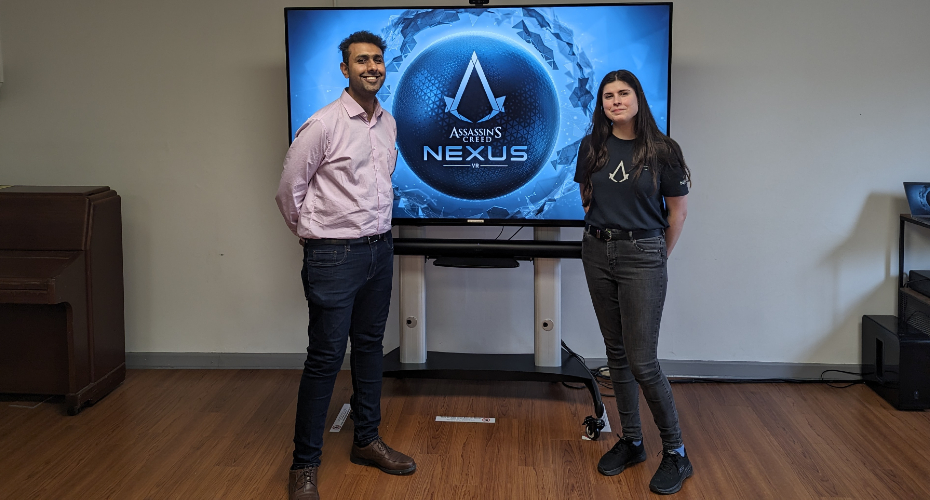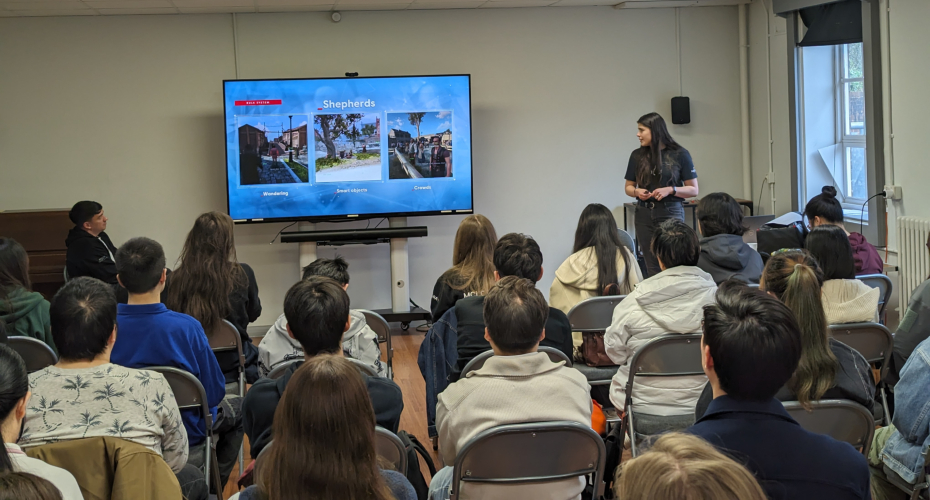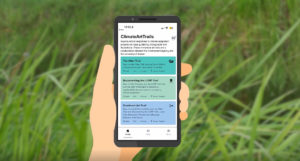Makers of Assassins Creed Nexus offer Exeter students unique insights in design of Virtual Reality experiences

One of the biggest companies in the global video games industry has visited the University of Exeter and placed students in the shoes of an assassin.
Ubisoft Entertainment, famed for its best-selling series such as Far Cry, Just Dance and Tom Clancy’s The Division, brought its new Assassin’s Creed Nexus VR technology to the Streatham campus and invited students to experience it first-hand.
Undergraduates and postgraduates enrolled on video game modules across the Faculty of Humanities, Arts and Social Sciences were offered the opportunity to don VR headsets and parkour their way around the game’s recreation of different historical locations.
The event, orchestrated by the Department of Communications, Drama and Film, also offered a rare insight into both the creation of the experience from one of its leading developers, and a range of topics concerning careers in the video game industry.
“After a year in planning, we were thrilled to welcome Ubisoft to the University and to take make the most of this priceless opportunity by learning a great variety of contemporary developments and processes,” says Dr Aditya Deshbandhu, Lecturer in Digital Media Sociology, and organiser of the event. “For the students to ‘peek under the hood’ of this technology and experience it for themselves is clearly a huge benefit. But it also highlighted how much planning and attention goes into the communication and marketing of these games with the public and other stakeholders.”

The creative and technical processes that led to the development of an experience like NEXUS VR were presented to the attendees by Lisa Ridley, Senior AI Programmer at Ubisoft Reflections Studio in Newcastle. Lisa not only explained to the audience of students and staff how the company set about developing an entirely new VR experience for its flagship Assassin’s Creed series but also spoke about how one of the biggest challenges of the medium was to allow for a player’s body and positioning to be central to the experience. The talk covered both the technical aspects of the 2023 game and the communication and creative process surrounding the launch.
Lisa also used the opportunity to offer her insights on AI in games and immersive cultures and share aspects from her own journey in the gaming industry. The talk was followed by a Q&A and informal conversation, before Lisa, with the assistance of two colleagues from the company’s Guildford office, demonstrated the game using Meta Quest headsets.
The team also presented the University with four copies of the game, which will now be used in the gaming modules offered by the department.
“The feedback we received was that they were genuinely impressed with the quality of the questions asked by our students,” adds Dr Deshbandhu. “They said they were nuanced, at times challenging and quite different to the ones asked at industry events, and that tells me that our unique pedagogy of ‘learning through play’ is leading to a high level critical and reflective enquiry.”
The University’s BA Communications and MA Media & Communications degrees have a number of video game modules open to students. These include an Introduction to Video game Studies, and Gaming in Everyday Life.




